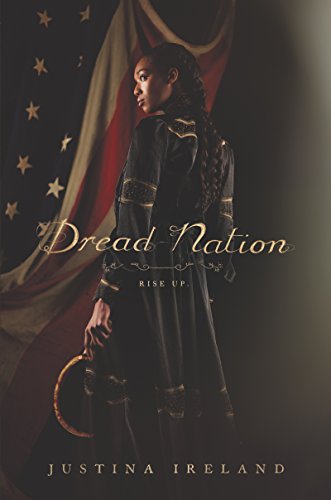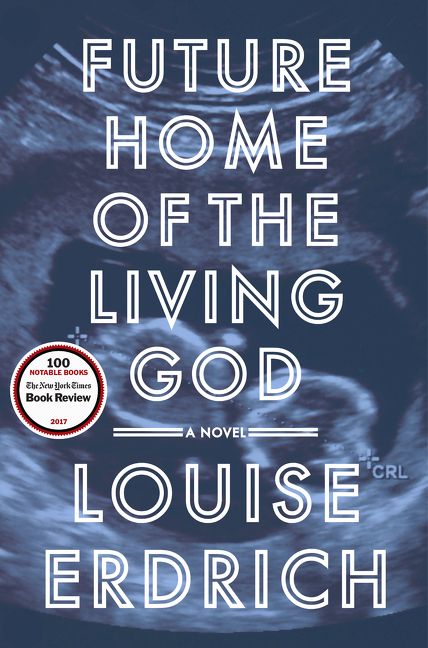This year, as we interrogate what it means to be a hero and what actions are seen as heroic, our Books and Breakfast program features titles in four areas to broaden our definition of heroism: religion, race, gender/sexuality, and body—and please note that some titles sit on multiple axes, not just the one they’re listed under! We’ll be highlighting all of these titles the coming months; you can read more about our religion picks here, and below are our Books and Breakfast selections exploring heroism and race.
2019 BOOKS AND BREAKFAST SELECTIONS
Religion
The Sisters of the Winter Wood by Rena Rossner
Race
Future Home of the Living God by Louise Erdrich
Gender/Sexuality
The Tiger’s Daughter by K Arsenault Rivera
Body
Gullstruck Island by Frances Hardinge
RACE SELECTIONS
A glance at the fantasy shelves these days—particularly at the young adult fantasy shelves—will hardly reveal a shortage of female heroes. Ferocious warriors, skilled assassins, superlative magicians, eagle-eyed commanders, sage healers, and shrewd queens. Yet, painstakingly few of them feature non-white heroes as their protagonists—rather, you’ll find them villains in more than a few tomes—and fewer yet are written by fantasy authors of color. This year, we urge you to discover our Books and Breakfast race picks: Justina Ireland’s Dread Nation and Louise Erdrich’s Future Home of the Living God.
Dread Nation by Justina Ireland

If you didn’t think that the Reconstruction era, Steampunk, and the zombie apocalypse went together, then gee, let me introduce you to Justina Ireland’s Dread Nation. What if, during the battle of Gettysburg towards the end of the Civil War, the undead—called shamblers—rise and begin terrorizing towns and cities across America? What if, after slavery was abolished, Congress establishes an act that mandates Black and Native children aged 12 enter military training camps to be the first line of defense?
Jane McKeene is a biracial Negro girl attending Miss Preston’s School of Combat, in which the best graduates become “Attendants,” chaperoning wealthy white women and defending them from shamblers, all while dressed in finery. But that’s just the beginning: Ireland’s gem of a novel is so incredibly inventive and sharp, it offers one of the best examinations of systemic racism and the Black experience I’ve read in a young adult novel, or any novel. It explores colorism with Jane’s rival, Katherine Devereaux, who is so gorgeous she stuns at fifty paces, and is passing as white; codeswitching, like when Jane purposely downplays her abilities to manipulate a situation; and much more. Ultimately, it confronts head-on how American history is literally built at the expense of black and Native bodies, and the complicity of white ‘allies’ with their words and actions masked as benevolence.
Published a year after Jordan Peele’s Get Out was released, Dread Nation accomplishes something equally ambitious, with razor-sharp cultural commentary, clever and perceptive worldbuilding details (because Sherman’s March to the Sea was obviously to burn a path through a horde of shamblers), and a hero in Jane who must blaze her destiny in a society where people in power don’t see her as human. It lurches you in directions you might not expect… but are inevitably not surprised by. It offers an alternate history of the United States that illuminates truths about our present—and that is the best kind of fantasy. Required reading.
—Faye
Future Home of the Living God by Louise Erdrich

As Future Home of the Living God opens, Cedar Hawk Songmaker—her improbable white name courtesy of her adopted Minnesota-liberal parents—seeks her Ojibwe birth family, a quest driven by her unintended pregnancy. But more than an ordinary desire to know her genetic history propels Cedar’s sudden interest in her tribe: The world’s genetics have suddenly gone awry, evolution is moving backward, and pregnant women often give birth to something other than human babies. As the novel progresses, as Cedar meets her birth family and navigates the new conventions of the United States and is ultimately imprisoned for her pregnancy, she questions over and over again if her baby is normal or a genetic malfunction—and in this world where nothing is certain, which would be the greater wonder.
Louise Erdrich began writing Future Home of the Living God in 2002, in the shadow of the Iraq War, a year after her youngest daughter was born. The question the book poses—Are we going backward?—is just as critical now as when Erdrich first asked. As you might expect, Future Home is a dystopia, but one full of both tiny marvels (new species abound) and Orwellian control (pregnant women are promised the best rooms if they check themselves into government facilities voluntarily). This work—seen through Cedar’s Indigenous eyes—is full of hard questions about what it means to progress (following the fall of the United States, Cedar’s tribe regains their land and autonomy), what it means if humans are an evolutionary pause (or even mistake), and in so many ways, how we approach the miracles inherent in so many things we take for granted: family, birth, love.
And it’s a book full of heroism. Perhaps not the sort of heroism you’re used to, where people with impossible powers save the planet from infinite threats. But a more quiet, perhaps more desperate, certainly more personal form of heroism, where an Indigenous mother, pregnant with an unknown child, will do everything in her power to keep that child not only safe, but with her. This is a book, ultimately, of awe: at what we—as ordinary people in a time of crisis—will do when called upon to be heroes.
—Amy







Connect with the Sirens community
Sign up for the Sirens newsletter